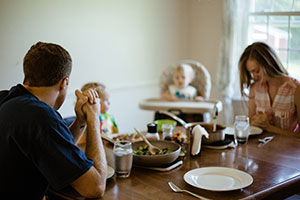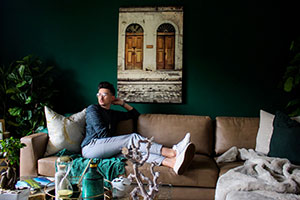
I have procrastinated for the last two weeks about how to start this article. I wondered if I should write about COVID-19. Things seem to be changing so quickly, that today’s news is stale tomorrow. And hasn’t enough been written already? Aren’t we all getting a bit tired of the “C” word? But I figured that many of you subscribe to Faith Journey because you are trying to make sense of the Catholic faith, and how it might have a role in everyday life.
Well, Catholic or not, we are all trying to make sense of what is happening in our world. That is, the world at large, and our own world. For practising Catholics, the rhythm of their week is missing a beat. The ritual of the Sunday Mass has been replaced with online offerings and private or family prayer. And, given that there has been considerable media interest about churches not being allowed to open for public worship, even non-practising Catholics may have given some thought to what they have been missing.
Ritual is important for Catholics. In last month’s Faith Journey we looked at the seasons of the Church’s calendar, and many of these seasons are marked by ritual actions. For example, we started the season of Lent with the ritual of having our foreheads marked with ash. In the Christmas season we will put up Christmas trees and sing Christmas carols.
Ritual is important for all of us, even if we aren’t Catholics. Rituals are reassuring and comforting. They are good for the rhythm of our lives. People who describe themselves as non-religious might still partake in a daily ritual of meditation, exercise or listening to music.
Coronavirus has played havoc with our rituals. Our days and weeks are no longer marked by our familiar rituals. Many of us are feeling a little lost, perhaps anxious or confused. It seems to me that those who are relishing the reality of home isolation are those who are able to control and maintain some sort of link with their daily habits. Or it could be that life events such as births, deaths and marriages or their incomes have not been affected by the virus. It could be that they were lucky enough to secure a steady supply of toilet paper!
However, as I watch my Facebook posts and chat online with friends and colleagues, I’m aware of those whose lives have been turned upside down over the last six months because of natural disasters and coronavirus. Even the small rituals of life, like putting on a favourite pair of track pants (burnt in the bushfires) or enjoying the little luxury of a coffee at their favourite café (banned because of coronavirus) have gone.
Many of these people are what I call “people of faith”. Many of them are Catholics. They miss not being able to go to Mass, but they know they can call upon the basic tenets of their faith: to love God and to love their neighbour.
Loving God cannot be reduced to the ritual of Sunday Mass. The more God is intertwined into the daily rituals of our lives (washing, working, cooking, eating meals, caring for loved ones), then our lives won’t come to a crashing halt when a single ritual is temporarily removed. Similarly, when we build communities of love then we will find ways to support each other, even in the most difficult of times.
If you are on the journey of faith, try to be open to how God might be working in your life right now. If you are suffering, ask God to help you, and be open to the help of others. If you are well, then ask God to show you how you can help others. And, if you feel so called, try to develop a daily ritual of inviting God into your life, in the good times and the bad.
A thought for the journey

One of my rituals each week is to listen to my favourite podcast from Bishop Robert Barron. That probably sounds incredibly holy, but believe me, he’s really very interesting. Even if you aren’t Catholic, he’s worth listening to.
Naturally enough he’s been giving his thoughts on the coronavirus pandemic, and what that might mean for people of faith. He referenced one of his favourite philosophers, Blaise Pascal (yes, he was also a mathematician). Pascal said: “All of humanity’s problems stem from man’s inability to sit quietly in a room alone.” Pascal thought that people spent a lot of time allowing themselves to be distracted from what truly matters.
Many of us now find ourselves in the smallness, and possibly the loneliness, of our own homes or rooms. We might looks for ways to entertain ourselves, to be distracted from the reality of what’s happening in the world.
Bishop Barron places a challenge before all of us. If we have been given this time of quiet, why not take the opportunity to ponder the real questions of life. “Does God exist?” “Why am I here?” “Is there life after death?”
Go on. Give it a go. You never know how God might respond.
And if, during this time of quiet, questions arise for you, then get in touch with us at This email address is being protected from spambots. You need JavaScript enabled to view it.. We would love to hear from you.
Easter blessings! Stay safe, stay well.
Malcolm and Sharon
Bishop Robert Barron on Coronavirus and Sitting Quietly Alone
Words: Sharon Brewer
Images: Family praying grace, Lightyear
Man on couch, Unsplash
This article is part of Faith Journey, a newsletter from the National Centre for Evangelisation.



